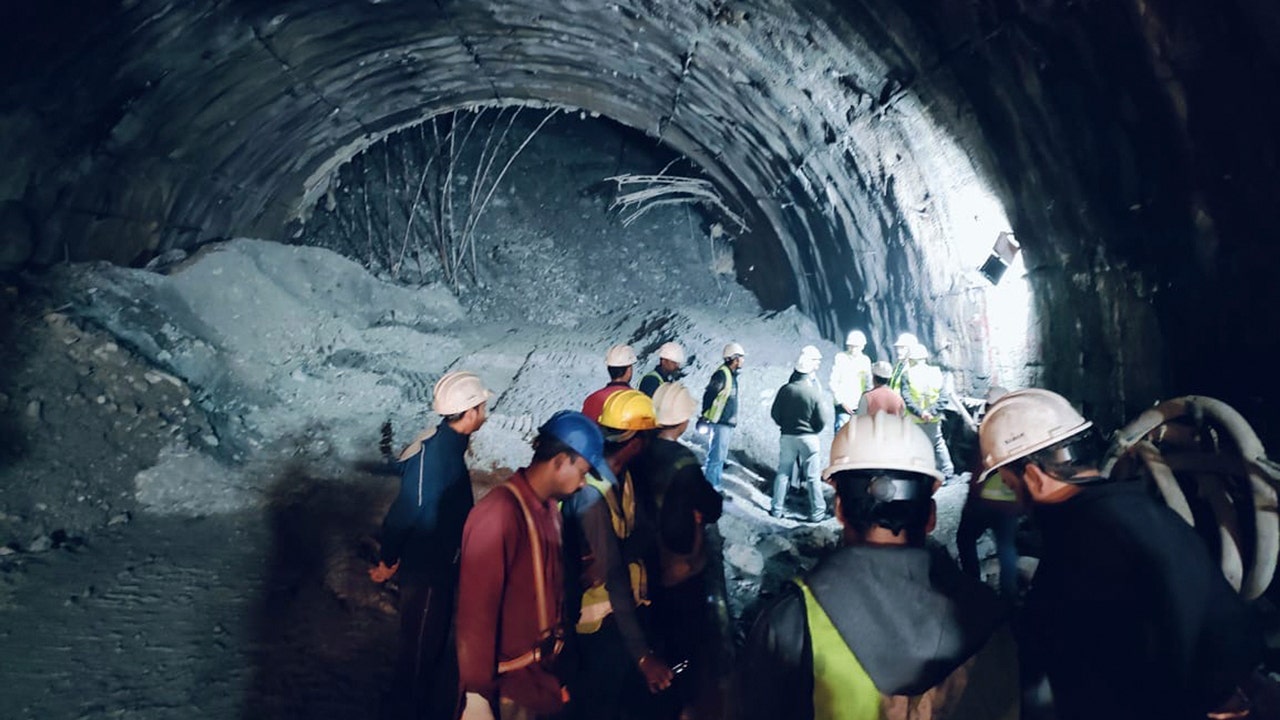The Birmingham Tunnel Incident has captured global attention, sparking discussions about safety protocols, infrastructure management, and emergency response systems. This event serves as a critical case study for understanding the challenges faced in maintaining urban infrastructure and ensuring public safety. In this article, we will delve into the details surrounding the incident, its implications, and the measures being taken to prevent similar occurrences in the future.
The Birmingham Tunnel Incident is not just a local issue but a global concern that highlights the importance of robust infrastructure planning and execution. As urban areas continue to grow, the demand for efficient and safe transportation systems increases. This incident underscores the need for continuous monitoring and improvement of tunnels and other critical infrastructure.
This article aims to provide a detailed analysis of the Birmingham Tunnel Incident, exploring its causes, consequences, and the lessons learned. By examining this event through various perspectives, we hope to offer valuable insights that can contribute to enhancing safety standards and infrastructure management practices worldwide.
Read also:Barrington Park District Your Ultimate Guide To Familyfriendly Recreation
Table of Contents
- Introduction
- Overview of the Birmingham Tunnel Incident
- Causes of the Incident
- Consequences and Impact
- Emergency Response and Management
- Infrastructure Safety and Maintenance
- Lessons Learned from the Incident
- Regulations and Policy Changes
- Role of Technology in Tunnel Safety
- Future Outlook and Preventive Measures
- Conclusion
Overview of the Birmingham Tunnel Incident
The Birmingham Tunnel Incident occurred on [insert date], when a significant disruption took place in one of the busiest tunnels in the city. This event involved a combination of factors that led to a temporary shutdown of the tunnel, causing widespread traffic congestion and raising concerns about public safety.
Details of the Incident
According to reports from local authorities, the incident began with a minor structural issue that escalated quickly. The tunnel, which serves as a crucial link for daily commuters, experienced a sudden collapse of a section of its ceiling. Emergency services were immediately dispatched to assess the situation and ensure the safety of those present.
Key Players Involved
- Local transportation authorities
- Emergency response teams
- Infrastructure maintenance personnel
Causes of the Incident
Investigations into the Birmingham Tunnel Incident revealed several contributing factors that led to the collapse. These factors highlight the importance of regular inspections and maintenance to prevent such occurrences.
Structural Issues
One of the primary causes identified was pre-existing structural weaknesses in the tunnel. Over time, wear and tear from constant use had weakened certain sections, making them vulnerable to collapse under stress.
Environmental Factors
Environmental conditions, such as heavy rainfall and fluctuating temperatures, also played a role in accelerating the deterioration of the tunnel's structure. These factors can cause materials to expand and contract, leading to cracks and other forms of damage.
Consequences and Impact
The Birmingham Tunnel Incident had far-reaching consequences, affecting both the local community and the broader transportation network. The immediate impact included significant delays and rerouting of traffic, which disrupted daily commutes and economic activities.
Read also:V Belt Guys Your Ultimate Guide To Understanding And Utilizing V Belts
Economic Impact
Businesses reliant on the tunnel for transportation of goods and services faced substantial losses due to the closure. The incident highlighted the critical role that infrastructure plays in supporting economic activities and the potential costs of neglecting its maintenance.
Social Impact
Residents and commuters expressed concerns about their safety and the reliability of the transportation system. This incident underscored the need for greater transparency and communication between authorities and the public regarding infrastructure safety.
Emergency Response and Management
The response to the Birmingham Tunnel Incident was swift and coordinated, involving multiple agencies and stakeholders. Emergency services worked tirelessly to secure the area and ensure the safety of those affected.
Initial Actions Taken
- Closure of the affected tunnel section
- Evacuation of individuals present at the time of the incident
- Deployment of engineers to assess structural integrity
Long-term Measures
In the aftermath of the incident, authorities implemented a series of measures to address the immediate concerns and prevent future occurrences. These included increased frequency of inspections and the development of contingency plans for emergency situations.
Infrastructure Safety and Maintenance
The Birmingham Tunnel Incident serves as a reminder of the importance of prioritizing infrastructure safety and maintenance. Regular inspections and timely repairs are essential to ensuring the longevity and reliability of critical transportation systems.
Best Practices for Maintenance
- Adopting advanced monitoring technologies
- Implementing predictive maintenance strategies
- Engaging expert engineers for periodic assessments
Lessons Learned from the Incident
Several valuable lessons have been learned from the Birmingham Tunnel Incident, which can inform future infrastructure management practices. These lessons emphasize the need for proactive measures and collaboration among stakeholders.
Importance of Proactive Measures
Preventive maintenance and regular inspections are crucial in identifying potential issues before they escalate into major problems. By adopting a proactive approach, authorities can minimize risks and ensure the safety of infrastructure users.
Regulations and Policy Changes
In response to the incident, there have been calls for stricter regulations and policy changes to enhance infrastructure safety standards. These changes aim to address the gaps identified in the current system and promote accountability among responsible parties.
Proposed Policy Changes
- Introduction of mandatory inspection schedules
- Increased funding for infrastructure maintenance
- Enhanced training programs for maintenance personnel
Role of Technology in Tunnel Safety
Advancements in technology offer promising solutions for improving tunnel safety and monitoring systems. By leveraging innovations such as sensors, drones, and artificial intelligence, authorities can enhance their ability to detect and respond to potential issues promptly.
Technological Innovations
- Deployment of structural health monitoring systems
- Use of drones for routine inspections
- Integration of AI for predictive analytics
Future Outlook and Preventive Measures
Looking ahead, the focus will be on implementing comprehensive preventive measures to safeguard against similar incidents in the future. This involves a collaborative effort between government agencies, private sector partners, and the public to create a safer and more resilient infrastructure network.
Key Preventive Measures
- Investment in research and development of new materials
- Enhancement of emergency response capabilities
- Public awareness campaigns on infrastructure safety
Conclusion
The Birmingham Tunnel Incident serves as a critical reminder of the importance of prioritizing infrastructure safety and maintenance. By examining the causes, consequences, and lessons learned from this event, we can work towards creating a safer and more reliable transportation system for everyone.
We encourage readers to share their thoughts and experiences in the comments section below. Additionally, feel free to explore other articles on our site for more insights into infrastructure management and safety practices. Together, we can contribute to a safer and more sustainable future.


